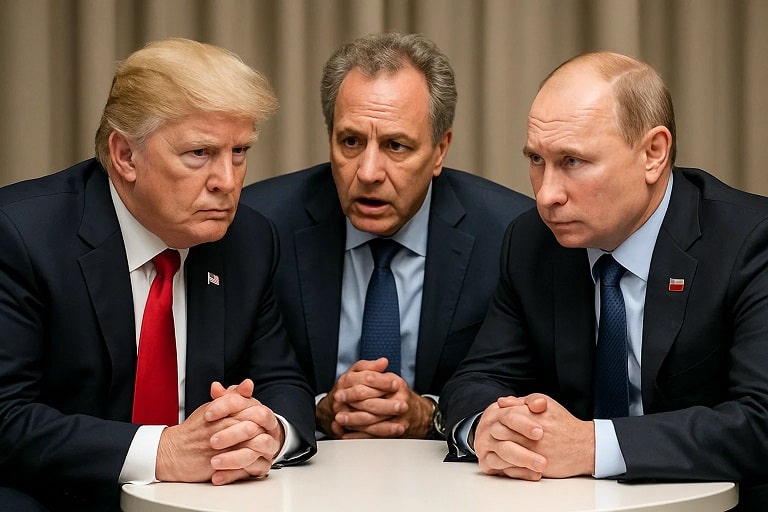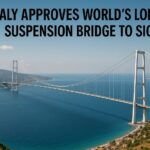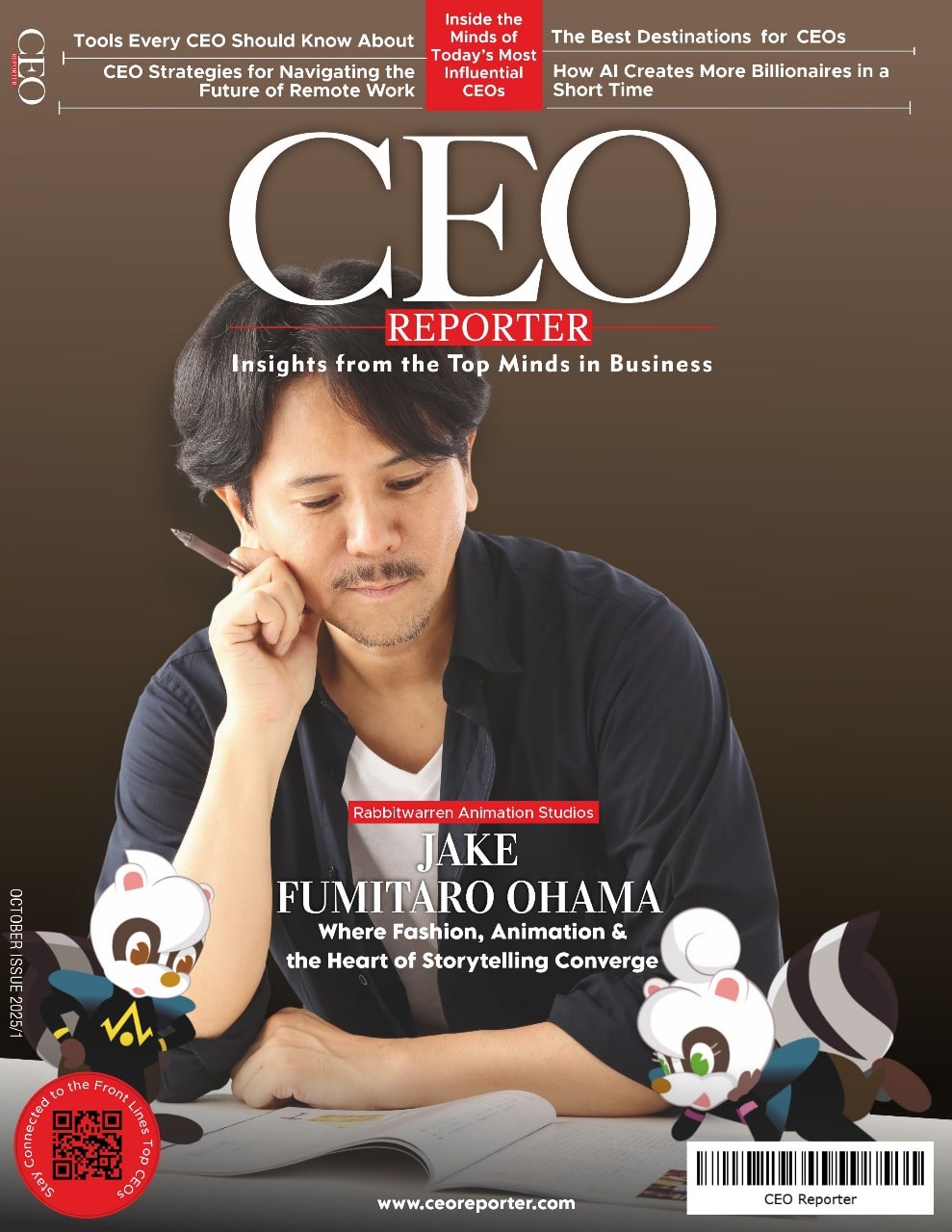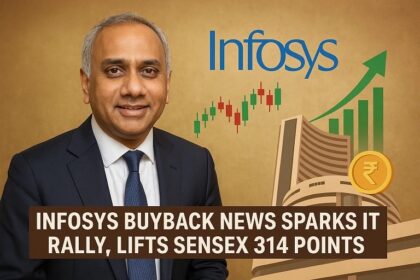On August 6, 2025, U.S. special envoy Steve Witkoff met Russian President Vladimir Putin in Moscow for a three-hour discussion aimed at securing a ceasefire in the Russia-Ukraine war, just two days before President Donald Trump’s deadline for Russia to agree to peace or face new U.S. sanctions. The Kremlin described the talks as “useful and constructive,” with both sides exchanging “signals” on the Ukraine issue and exploring potential U.S.-Russia strategic cooperation. However, with Russia’s ongoing attacks and unchanged demands, expectations for a breakthrough by the August 8 deadline remain muted. Trump’s threat of “severe tariffs” and secondary sanctions on Russia’s oil buyers, like India and China, has already disrupted markets, contributing to the Indian rupee’s record low of 88.10 on August 5.
Background of the Crisis
The Russia-Ukraine war, now in its third year since Russia’s full-scale invasion in February 2022, has killed over 12,000 Ukrainian civilians, according to the United Nations, with recent Russian strikes on Kyiv and Zaporizhzhia intensifying the humanitarian toll. Trump, who claimed before taking office in January 2025 that he could end the war “in 24 hours,” has grown frustrated with the lack of progress. His administration initially set a 50-day ultimatum for a ceasefire, later shortened to 10-12 days, reflecting irritation with Russia’s continued attacks, including a July 31 strike on Kyiv that killed 31 people.
Steve Witkoff, a real estate billionaire with no prior diplomatic experience, has emerged as Trump’s key negotiator with the Kremlin, making his fifth trip to Moscow since January. His previous meetings with Putin, including one in April 2025, have built a rapport—marked by gestures like Putin gifting an oil painting of Trump—but failed to yield concessions. Critics argue Witkoff’s inexperience and occasional reliance on Kremlin translators make him ill-equipped to counter Putin’s tactics, raising concerns among Ukraine and U.S. allies.
Details of the August 6 Talks
Witkoff arrived in Moscow on August 6, greeted by Russian investment envoy Kirill Dmitriev at Vnukovo Airport, followed by a stroll in Zaryadye Park near the Kremlin. The three-hour meeting with Putin, held in the Kremlin, focused on the “Ukrainian crisis” and potential U.S.-Russia strategic cooperation, according to Kremlin aide Yuri Ushakov. Russian state media reported “signals” exchanged on Ukraine, but no specifics were shared, pending Witkoff’s report to Trump. Dmitriev posted on X, “Dialogue will prevail,” signaling optimism, though no concrete outcomes were announced.
Trump’s message, per his Tuesday statement, was clear: “We’re going to see what happens. We’ll make that determination at that time.” The talks followed a phone call between Trump and Ukrainian President Volodymyr Zelenskyy on August 5, discussing sanctions and increased U.S. weapons support to Ukraine, funded by NATO allies. The U.S. approved $200 million in military sales to Ukraine on August 5, focusing on drone production and defense cooperation.
Key Meeting Details | Information |
|---|---|
Date | August 6, 2025 |
Duration | ~3 hours |
Location | Kremlin, Moscow |
Participants | Steve Witkoff, Vladimir Putin, Yuri Ushakov, Kirill Dmitriev |
Topics | Ukraine ceasefire, U.S.-Russia strategic cooperation |
Outcome | “Useful and constructive,” signals exchanged, no public details |
Trump’s Tariff and Sanctions Threats
Trump’s Friday deadline threatens “severe tariffs” and secondary sanctions on Russia’s oil buyers, notably India and China, which account for 38% and 48% of Russia’s oil exports, respectively. On August 1, Trump imposed a 25% tariff on Indian goods, accusing India of profiting from Russian oil resales, contributing to the rupee’s drop to 88.10. He has hinted at further tariffs, potentially 100%, if Russia does not comply, though he expressed skepticism about their impact, noting Russia’s ability to evade sanctions.
India’s Ministry of External Affairs called the tariffs “unjustified,” arguing that the U.S. and EU also import Russian energy, with EU-Russia trade at €67.5 billion in 2024. Ukraine supports stronger sanctions, with Zelenskyy’s aide Mykhailo Podolyak stating they could trigger “irreversible logistics” to cripple Russia’s economy. However, Ukrainian MP Oleksandr Merezhko doubts Trump will impose harsh sanctions on India and China, citing his desire to maintain relations.
Russia and Ukraine’s Positions
Putin’s demands remain unchanged: Ukraine must cede four occupied regions, accept neutrality, and abandon NATO aspirations. He reiterated on August 1 a desire for a “stable peace,” but Russia’s new hypersonic missile, Oreshnik, and ongoing attacks—like a Zaporizhzhia strike killing two on August 5—signal no retreat. Zelenskyy insists on an immediate ceasefire, Russia’s withdrawal from occupied territories, and Ukraine’s sovereign right to pursue NATO membership, rejecting territorial concessions as unconstitutional.
Three rounds of Russia-Ukraine talks in Istanbul since May 2025 have yielded only prisoner exchanges, with the latest securing 1,200 Ukrainian troops. Russia’s summer offensive, while gaining ground, has been slow and costly, with no major cities captured. Ukraine’s defenses, bolstered by $24 billion in European aid and U.S. weapons, remain intact but strained.
Market and Geopolitical Implications
The tariff threats have already impacted markets, with the Indian rupee hitting a record low and $11 billion in foreign equity outflows from India in 2025. Potential sanctions on Russian oil could push Brent crude prices to $120 per barrel, disrupting global energy markets. Trump’s repositioning of two U.S. nuclear submarines in response to Russian threats from Dmitry Medvedev escalates tensions, raising fears of broader U.S.-Russia confrontation.
Analysts like Gerhard Mangott see the talks as a “last-ditch effort” with little chance of compromise, given Putin’s belief in military victory. Ukrainian officials, including Zelenskyy, argue Russia will only negotiate if economically strained, urging stronger sanctions. X posts reflect skepticism, with users like @HopeForUkraine calling Witkoff’s trip a “waste of time” due to Putin’s intransigence.
Outlook
Witkoff’s report to Trump will determine the next steps, with sanctions or tariffs likely if no progress is made by Friday. Ukraine expects secondary sanctions to target Russia’s energy and banking sectors, though Trump may limit measures against India and China to preserve trade ties. Russia’s continued attacks and Putin’s territorial demands suggest a stalemate, potentially prolonging the war and economic uncertainty. The U.S.’s $200 million aid package and NATO-funded weapons signal sustained support for Ukraine, but a resolution hinges on Russia’s response to economic pressure.
<h2dir=”ltr”>Conclusion
Steve Witkoff’s August 6 meeting with Vladimir Putin represents a critical attempt to avert harsher U.S. sanctions and secure a Ukraine ceasefire before Trump’s Friday deadline. While the Kremlin called the talks constructive, Russia’s ongoing offensive and rigid demands dampen hopes for a breakthrough. Trump’s tariff threats, already impacting India’s rupee and global markets, underscore the high stakes, but Putin’s focus on military gains suggests diplomacy may falter. As Witkoff briefs Trump, the world awaits whether sanctions, tariffs, or continued conflict will define the next phase of this protracted crisis.














